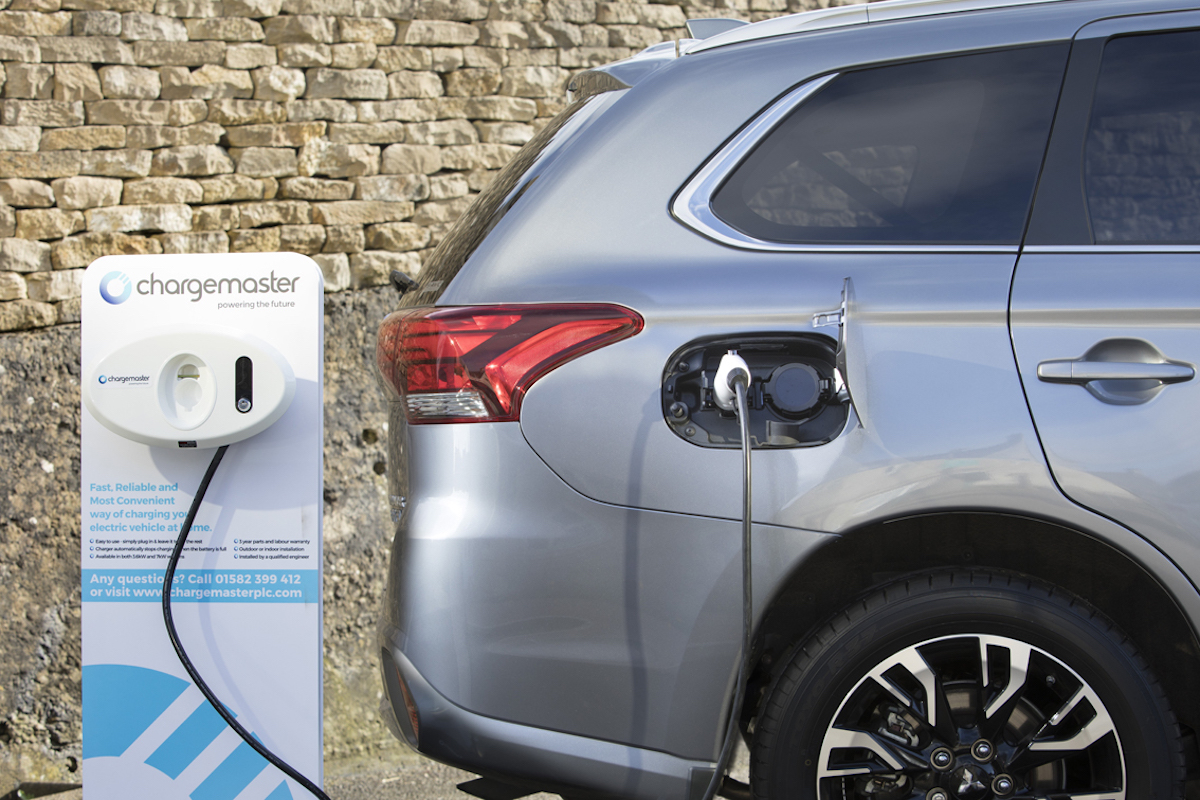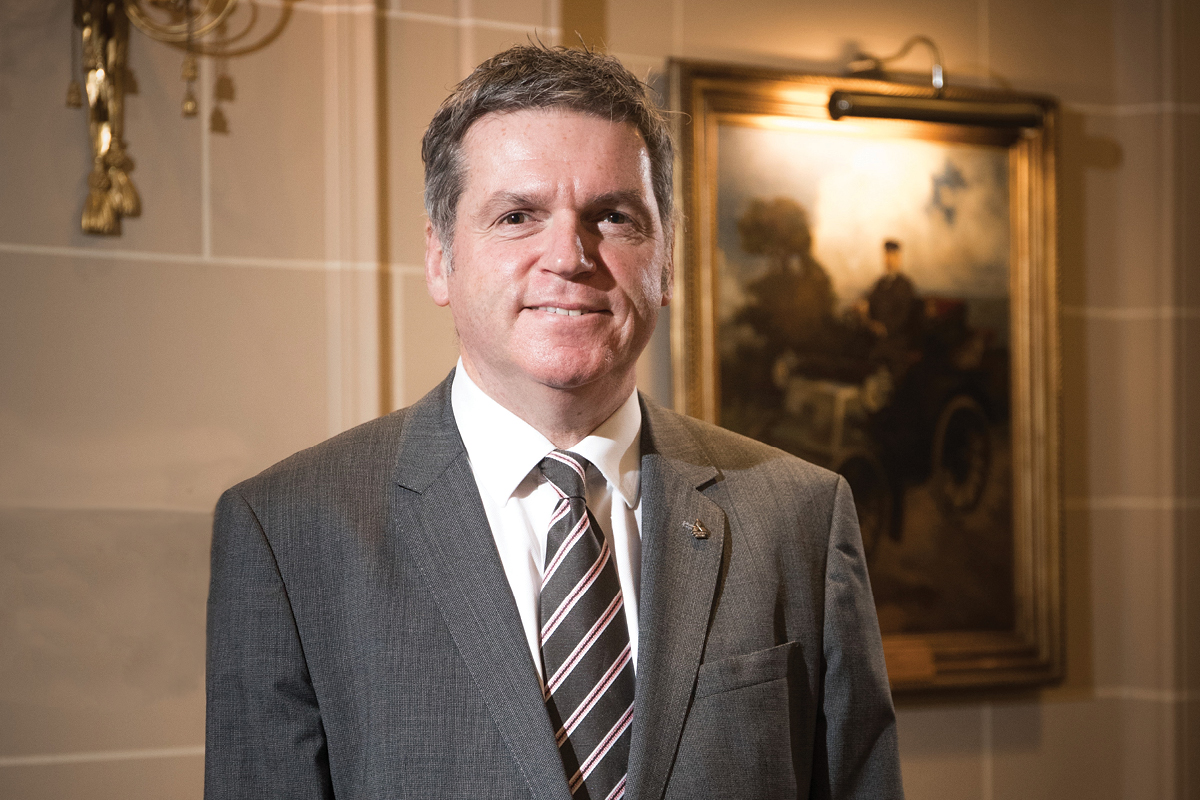Lance Bradley, Managing Director of Mitsubishi Motors UK, says that automotive manufacturers seeking to gain presence in a relentlessly competitive and constantly evolving market need to both develop and actively promote their point of difference. In light of this, he explains, customer service at all levels of Mitsubishi Motors UK has been a significant focus under his watch.
Having joined Mitsubishi in 2000 from Ford Motor Company, Lance was initially appointed general manager of Sales Operations, and was then promoted to sales and marketing director the following year. In 2009, he was appointed managing director. He says that the first thing he did upon taking on the role was to ask, “How can we best differentiate ourselves in the market?”
He considered why customers would buy Mitsubishi’s products rather than a competitor’s, and assessed and identified the company’s comparative strengths, focusing on how Mitsubishi could employ those strengths to its advantage and stand out in the market. “Sometimes we have the best car, but you know that product cycles are just that – they’re cycles,” he notes.
“We may have the best car, but then in two years’ time somebody else launches one, and that will have something that we don’t have at the time. You can never be in a position where you’ve always got the best vehicles. You can always have very good vehicles; however, by definition you can’t always have the latest.”
Lance Bradley creates a culture change at Mitsubishi
As Lance explains, Mitsubishi was not going to be the biggest player in the market, and did not want to be the cheapest, with the carmaker’s focus instead trained on “providing excellent service”.
It was here that an important distinction was drawn between ‘good’ and ‘excellent’, with Mitsubishi seeking to go above and beyond standard customer expectations.It was a process that encompassed all levels of the organisation, commencing with Mitsubishi’s interdepartmental service – a step that Lance acknowledges “was a bit of a culture change” – before then being extended to the carmaker’s dealers throughout the UK.
“That was quite interesting as well,” he recalls. “There were lots of things that the dealers pointed out that were really quite easy to fix. We just hadn’t asked those questions before, and that really helped. Once we were done, we then said to the dealers, ‘Now we’re going to ask your customers what they think of you.’”
There were lots of things that the dealers pointed out that were really quite easy to fix. We just hadn’t asked those questions before.
It was at this stage of the process that a significant decision was made: to publish the results of the customer feedback in the form of a star rating via Mitsubishi’s website. Lance notes that at first “nobody believed” he would actually follow through with the move. “I told them, ‘We’re going to publish your star rating’,” he says. “We’ll give you six months to get it right. We don’t want to embarrass anybody. However, when you go to the website dealer locator, it will provide your name, your opening hours, your address and your star rating.”
Lance states that it “worked spectacularly well”, providing dealers with an extremely effective incentive to deliver customer satisfaction. As he notes, when presented with the choice of visiting a three-star or five-star dealer, consumers will naturally choose the latter, even if it means travelling further. “That was quite a big change, because you always have to pick the battles that you are going to win,” he reflects.
Our strengths are that we are a fairly niche player, and that, while we are relatively small, we are also relatively nimble.
“For instance, it’s no good saying that we will take on Ford to be the biggest in the UK market, as it is never going to happen. So we don’t fight that battle; we instead stick to our strengths. Our strengths are that we are a fairly niche player, and that, while we are relatively small, we are also relatively nimble. Our dealers are the same – they’re mostly small, which means they can be nimble.”
Of course, having a smooth-functioning dealer network in place underpins the launch of new vehicles, and Mitsubishi has been active in this area in recent years.
Mitsubishi Outlander PHEV: kickstarting the UK electric vehicle market
Standing out among the carmaker’s recent releases is the Outlander PHEV (a plug-in hybrid electric vehicle), with Lance reflecting that the 4×4 SUV launched in 2014 not only changed Mitsubishi but also the car market in the UK. Lance attributes a range of factors to its success.
Assessing the challenge of introducing electric vehicles to the automotive market, Lance points more broadly to the inherent challenges of introducing new technology to any market, and notes that principal among these challenges are the potential price barriers. He recalls that Mitsubishi had held off on the UK release of the Outlander PHEV amid discussions about the launch price.
As he explains, the market for electric vehicles was yet to gain traction, and it was therefore important to both educate consumers and provide a significant motivation for purchase. It was decided the Outlander PHEV would be released without a price premium for its hybrid technology, meaning that customers could choose between a diesel or PHEV Outlander, at the same price.

It was a decision that Lance notes effectively kickstarted the electric vehicle market in the UK. “We invested millions in marketing,” he recalls of the significant planning that supported the release of the Outlander PHEV.
“We had to explain to people what a plug-in hybrid was: not only why ours was good, but also explain exactly what it was. I was very proud of what the guys did, and I thought that the first ad that we released was outstanding. We put in a massive effort in the first year of its launch and we sold 10,037. We’ve gone on to sell over 30,000, and we’re still the market-leading electric vehicle manufacturer in the UK. That has been remarkable.”
It is also notable that, while sales of the plug-in hybrid electric have soared, the diesel variant has also experienced sales growth, with Lance attributing this to Mitsubishi’s customer-centric service offering. “If you’re mostly taking long journeys, the diesel is better,” he comments. “We spent a lot of time and effort training our dealer network, and it sounds counterintuitive, but part of the training is teaching how not to sell the Outlander PHEV to some customers, but to actually sell them the diesel instead. In turn, the dealers did really well at it, and sales of the diesel went up as well.”
Mitsubishi Motors UK: an industry trendsetter
Lance shares that Mitsubishi is focused on remaining an industry trendsetter, not only via its product offerings but also by utilising digital technologies as it seeks to provide a more complete customer service offering. He explains that a key focus has been delivering customers more control over the sales process, effectively providing for customers to choose which facets of the current sales process they keep and which ones they don’t.
“We will allow customers to configure their car online,” he says. “We’ll allow them to see how much it would cost according to different finance plans – and the deal that you get online would be exactly the same deal as in the showroom; the terms and the price are exactly the same.”
“Customers can still go into the dealership and go through the process there if they want to, or they can do part of it online, and then they’ll get a reference number. They can then go into the dealership and plug in that reference number and do the rest in the dealership. Alternatively, they can do it entirely online if they want to, and have the car delivered to their house.”
Looking ahead, Lance is firmly focused on product and sales growth, with Mitsubishi set to add to its product portfolio in the coming years. “There’s a raft of products coming in, about one a year for the foreseeable future, and that will help us to grow the volume,” he comments. “We also expect that our online sales option will help us to grow sales, which will in turn form a virtuous circle.
“Furthermore, we have a plan to help the dealers cover bigger territories without having to invest in full dealerships in each territory. There’ll be a main dealership, and potentially they can cover a territory by having a service centre there. You don’t necessarily need a full showroom, because if customers can buy online, the dealer will then deliver the car to the customers for a test drive.”
Lance Bradley is an Outstanding UK Leader
Lance’s efforts to position Mitsubishi as a trendsetter in the UK car market have not only delivered benefits for the carmaker but have also attracted wider industry recognition. Last year, he was given an Outstanding UK Leader award from motoring magazine Autocar, which he states he was incredibly proud to receive on behalf of everybody at Mitsubishi. “It did have my name on it, but it was the collective effort of everybody at Mitsubishi in the UK,” he comments.
“There’s no question that we were all amazed by it – we know that we’re a niche player, and that usually it’s the big guys that get the awards because they tend to do more stuff. It takes pride of place in my office at work.” Lance’s work philosophy revolves around engagement and empowering employees both to be innovative and to take ownership of their actions, and he stresses the role of a leader in listening, coaching and guiding.
Summing up his approach, he notes: “There is never one solution to any issue. What I try to encourage is for people to come to me with a plan,” he explains. “The most important thing is to have a plan that the person carrying it out believes in. So, if somebody comes to me with a plan that sounds credible, I will say yes to it.
“They then have to make that plan work, because if it doesn’t work, they will have to come back to me and say, ‘You know that idea of mine? It didn’t work.’ That’s actually okay, and I don’t mind people doing that, although you wouldn’t want to do it too often, of course.”
A passion for the product
Interesting times lie ahead for Mitsubishi and the wider automotive industry amid the evolution of digital technologies and the growing market for electric cars; however, regardless of the technology involved, having a passion for the product that you sell will provide a significant advantage in any industry.
Lance says that it was a love of cars that had initially attracted him to the automotive industry. “Even though my degree was in engineering, I had decided that I wanted to do something in sales and marketing,” he recalls. “I thought that the best way of doing that would be to go into an industry where you’re passionate about the product, and for me cars was an obvious choice.”
With this in mind, what is his favourite car to drive? Lance has “always loved driving the Lancer Evolution,” which he describes as “an exhilarating car”, and when it comes to a non-Mitsubishi, he has a Jaguar E-Type. For weekend driving, he says it is hard to go past his wife’s Outlander PHEV.



